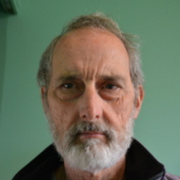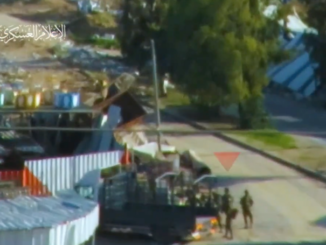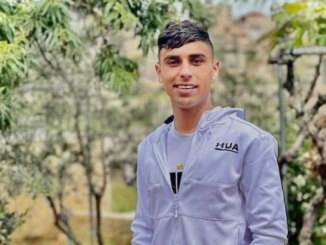
By Jim Miles
(Women’s Voices From Gaza – A White Lie. Madeeha Hafez Albatta. Ed. Barbara Bill & Ghada Ageel. University of Alberta Press, Edmonton, 2020.)
“A White Lie” is the first in a series of oral histories from a woman’s perspective living through events – modern history – occurring in Gaza and regionally. As history is usually written by old white men at the end of a certain epoch or episode in history, people’s voices, women’s voices in particular, are seldom if ever heard.
With this series of books, lived oral history becomes part of the written record, a preservation of history so as to survive all attempts to erase it, becoming a true component of all historical records. It is not “official” history, but history written by those who experienced it in their daily lives.
Madeeha’s story presents the joys of family and community and the sorrows and fears of family and community under assault and occupation. Her family is central to her story, those who raised her and supported her, her husband’s strong affection and intelligence, and her many children who lived and died under assault.
Education is another focus of her story. The title itself refers to a ‘white lie’ she told her own father in order to further her education to become a teacher, a headmistress, and an organizer of many educational projects in Gaza. Her own children became part of the mix of people temporarily denied exit, or re-entrance, as they traveled to Cairo and the U.S. in order to achieve higher levels of education and become successful citizens in their own way.
The overall descriptor of “sumoud” applies to her life and efforts, an indefatigable personality not without the tears, “I cried for Anwar, I cried for my two brothers [murdered in Khan Younis, 1956], I cried about the situation, the difficult life, the lady who had died, our people, and all of the people who live under conditions of injustice.”
Her last wishes were for an independent state, an idea that is not viable at the moment, but also expresses her wishes for her people, “…to see my children enjoy their lives in dignity, to see my people live in freedom….to live better and more beautiful days than we lived, free from wars, tragedies, and suffering.”
From the purely historical data perspective, her story captures information that does not appear in any history books that I can recall. The most brutal images she presents are from the “Suez War” in which Britain – who else, it’s “in their blood” – France, and Israel attempted a plan to conquer Egypt and take over control of the Suez Canal in 1956. Most historical records note this smaller war, with most observations discussing how it was the U.S. at the time that forced an end to the war.
Madeeha was in Cairo when the war erupted and returned to a village where a massacre of over one thousand citizens – mostly boys and men who could fight, or worse for Israeli demographics, have families – took place during the short occupation. Two of her own brothers were shot and killed. Not only were the male residents of Khan Younis massacred, but many Egyptian soldiers were also summarily executed by their Israeli captors.
This story and the ones that follow assert the centrality of women in reclaiming Palestinian history. The constant emphasis from reading works on Palestine is not of violence and revenge but a wish, a dream, for peace and a normal existence for their families and community. “A White Lie” presents a strong woman’s story of that wish, regardless of the hardships they all must endure.

– Jim Miles is a Canadian educator and a regular contributor/columnist of opinion pieces and book reviews to Palestine Chronicles. His interest in this topic stems originally from an environmental perspective, which encompasses the militarization and economic subjugation of the global community and its commodification by corporate governance and by the American government.







